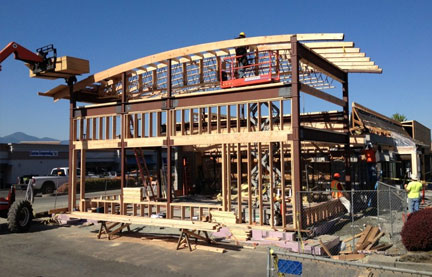Market & Feasibility Studies

Although commonly used interchangeably, these two types of studies are actually different concepts. Market studies, more accurately referred to as marketability studies when a specific property is the focus of the study, seek to analyze the subject property in relation to the economic environment in which it operates.
Fundamentally, it considers the interaction of supply and demand within the primary trade area, factoring in the specific characteristics of the subject property, including its location relative to demand drivers versus the locations of competing restaurants, as well as site characteristics including accessibility, visibility, adequate convenient parking, and other considerations. In short, its competitive position within a market. In contrast, a feasibility study seeks to determine if the perceived market value exceeds the cost of development of a property. Market analysis also provides a basis for analyzing highest and best use of the property. The market determines the use, and the use affects the value.
In practice, the integral processes of delineating a market, assessing demand, surveying the competitive supply, studying the relationship between supply and demand in the trade area, and tracking market trends serve as the underpinnings of the formal six-step process of market analysis and feasibility studies.
Market and feasibility studies for restaurants include:
- Determination of the primary trade area, as well as secondary and tertiary trade areas
- Careful analysis of site characteristics as well as traffic patterns
- Analysis of the location within the trade area and relative to demand drivers and competition
- Demographic considerations within the trade areas, taking into account the proposed concept
- Survey and analysis of competitive supply
- Analyze the interaction between supply and demand